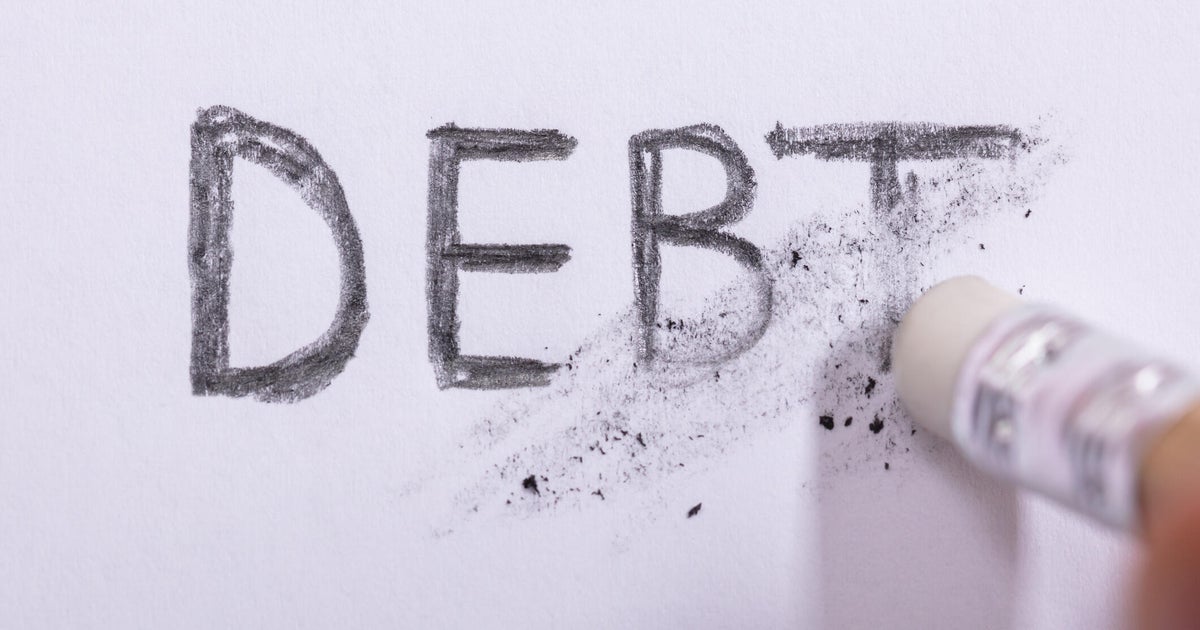Here's how your credit card debt can become uncollectible
Between today's high average rates and the compounding interest charges, it's easy for credit card debt to grow out of control quickly — and millions of Americans are currently struggling to keep up. Right now, credit card debt is sitting at a collective high of over $1.14 trillion nationwide and credit card delinquencies are rising, with about 9% of debt now considered delinquent, signaling a serious issue with credit card debt.
Being late on your credit card payments can have a negative impact on your finances. Not only will missing your credit card payments cause serious credit score damage, but making your payments late (or not at all) can also cause the cost of your debt to grow due to late payment fees and penalty annual percentage rates (APRs) being assessed on your accounts. So, if you're behind on your card payments right now, you may be wondering what to do next to tackle the situation.
While repaying your delinquent credit card debt is often the best strategy, some circumstances could lead to credit card debt becoming legally uncollectible. Understanding how this can happen can help you make the best decision for your late credit card debt.
Learn what your top debt relief options are here.
How your credit card debt can become uncollectible
There are a few ways in which credit card debt can be considered uncollectible, including:
The statute of limitations expired
Every state has a statute of limitations on debt, which is the time limit during which creditors can legally sue you for repayment. The length of this period varies by state but typically ranges from three to 10 years (or more) for credit card debt. Once this period expires, the debt becomes "time-barred," meaning creditors can no longer take you to court to collect.
However, while the debt may be legally uncollectible, debt collectors can still attempt to contact you and try to collect what you owe. It's important not to make payments on time-barred debt, as this could reset the statute of limitations, allowing your creditors to sue for repayment.
Start tackling your delinquent credit card debt today.
The debt was charged off
If you've been delinquent on your credit card payments for more than six months, creditors might charge off your debt, which means they write it off as a loss on their books. This makes the debt uncollectible from the original creditor — meaning that the card issuer won't be making further attempts to collect on it.
However, it's important to note that charge-offs can still be sold to collection agencies, which is the route that many card issuers choose to take after your debt is charged off. These agencies buy the debt for a fraction of its original value and have a legal right to try and collect on it, as long as the debt is still within the statute of limitations.
The debt was discharged via bankruptcy
Filing for bankruptcy, specifically Chapter 7, can discharge certain unsecured debts, including credit card debt. When your debt is discharged in bankruptcy, it's legally uncollectible, and creditors or collectors can no longer contact you for repayment. That said, bankruptcy is a serious financial decision that has a lasting impact on your credit and future borrowing ability, so it should typically only be considered as a last resort.
Documentation by the creditor was incomplete or incorrect
In certain cases, creditors or collection agencies may lose documentation proving the debt is owed. Without adequate documentation, a creditor may not be able to prove their claim in court, rendering the debt uncollectible. If you believe that a creditor lacks proper records or that the debt is incorrectly attributed to you, it may benefit you to request validation of the debt under the Fair Debt Collection Practices Act (FDCPA). If the creditor cannot provide evidence, the debt may become uncollectible.
The creditor violated the FDCPA
Under the FDCPA, creditors and collection agencies are prohibited from using abusive, unfair or deceptive practices to collect debts. If a creditor or collection agency violates these rules, it may face penalties, and in some cases, the debt may become uncollectible due to legal challenges. For example, harassment or misleading tactics by a collection agency could potentially invalidate a debt, though it's rare.
Other ways to handle old credit card debt
When credit card debt becomes overwhelming, allowing it to age out isn't your only option. There are debt relief options that could offer a practical solution, including:
- Debt consolidation: Debt consolidation combines multiple debts into a single loan with a lower interest rate, which can lower your monthly payments and simplify your finances.
- Debt forgiveness: Debt forgiveness is a strategy where you negotiate with creditors to settle the debt for less than the full amount owed. Using this strategy could reduce your balance by 30% to 50% in some cases.
- Credit counseling: You also have the option to work with a credit counselor to develop a debt management plan that can lower your credit card interest rates and fees.
The bottom line
While debt may become uncollectible under certain circumstances, the best approach is typically to address it proactively. Waiting for debt to become uncollectible can damage your credit score for years and limit your financial options. So rather than wait for that to happen, it makes sense to explore your debt relief options to make the best choice for your financial situation.




